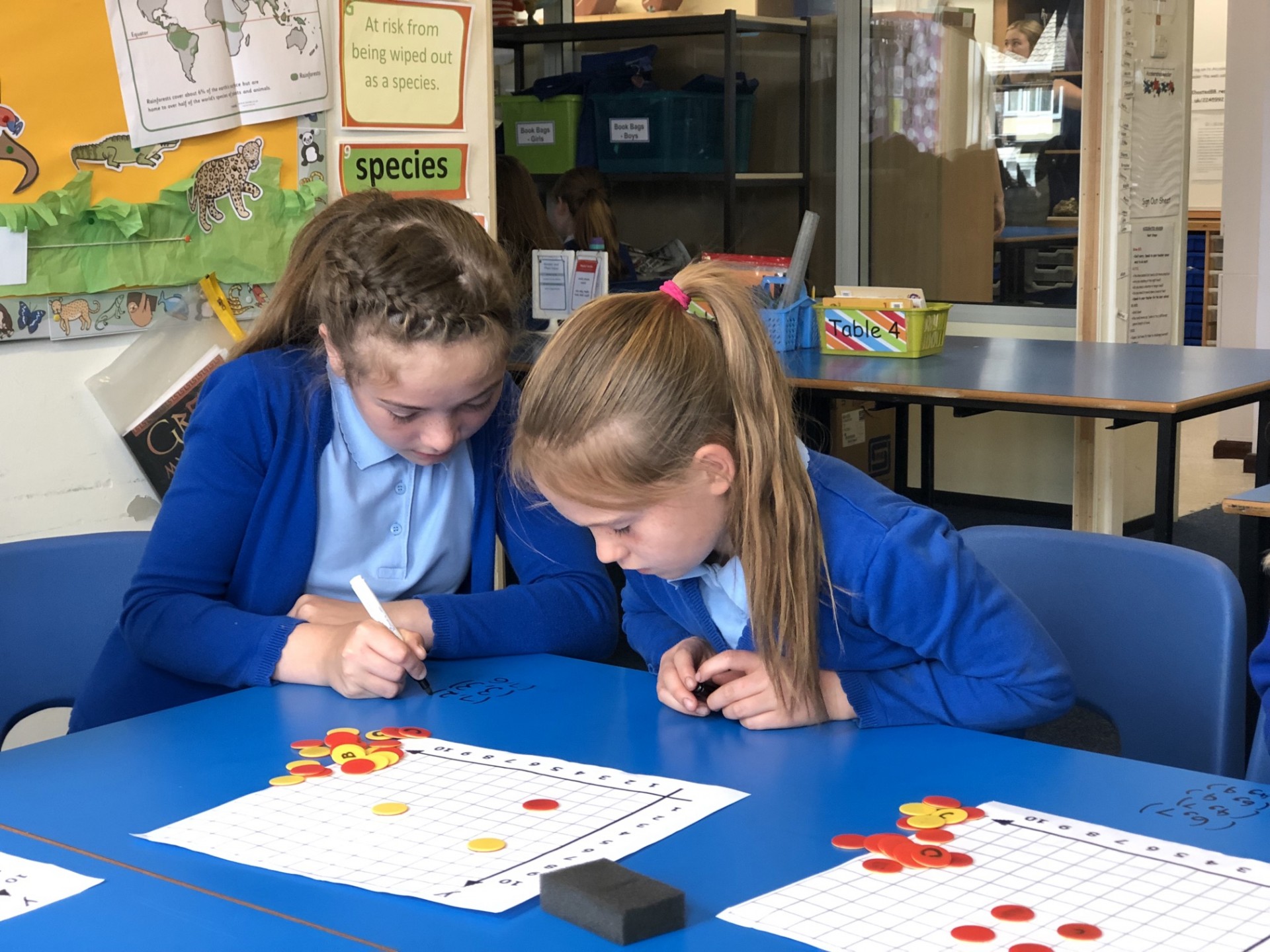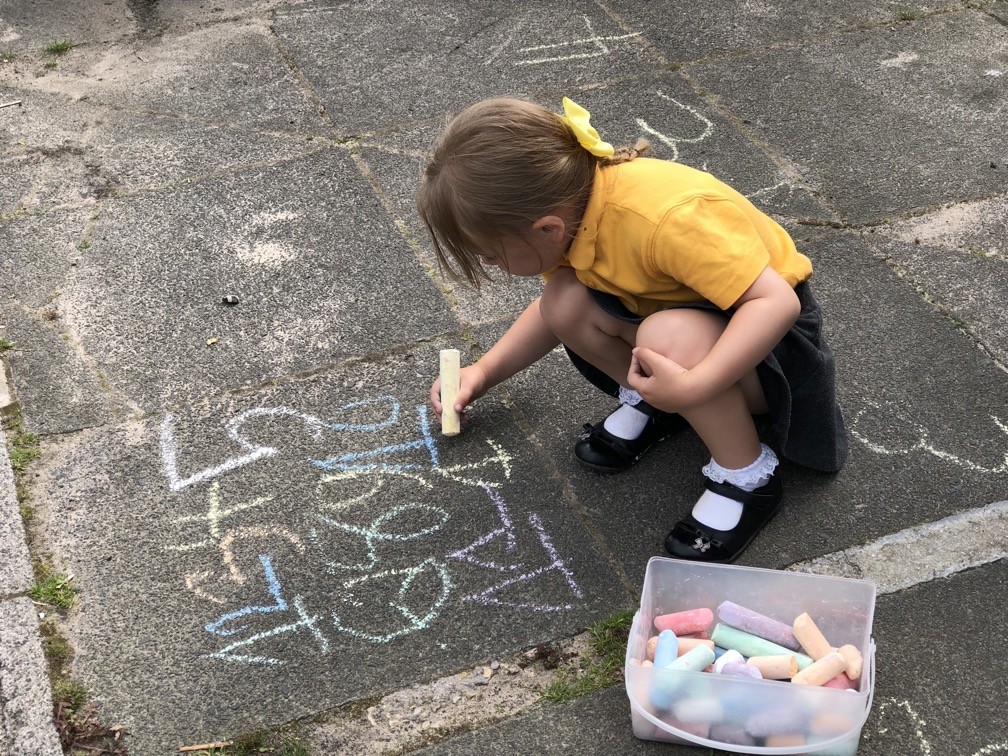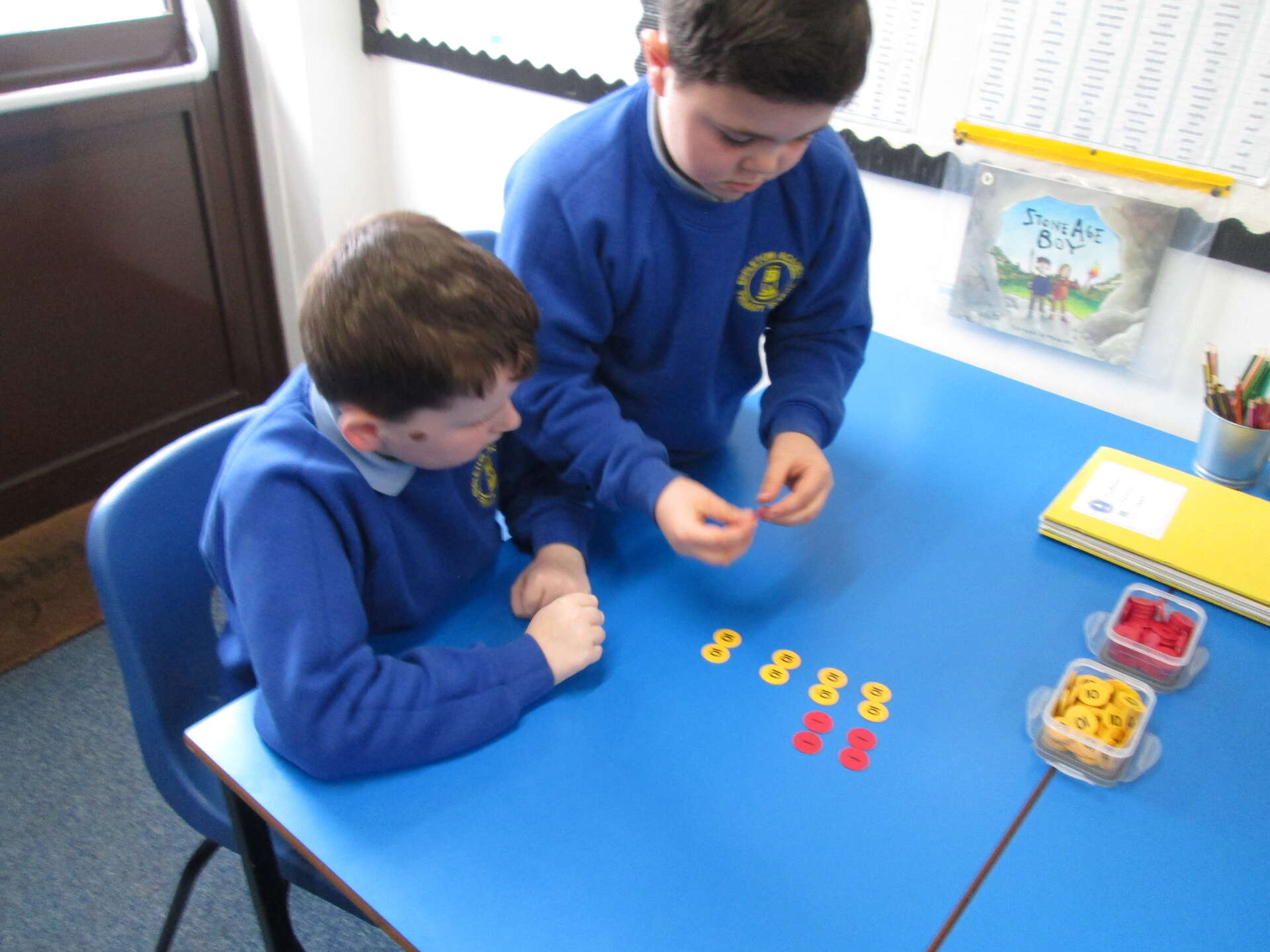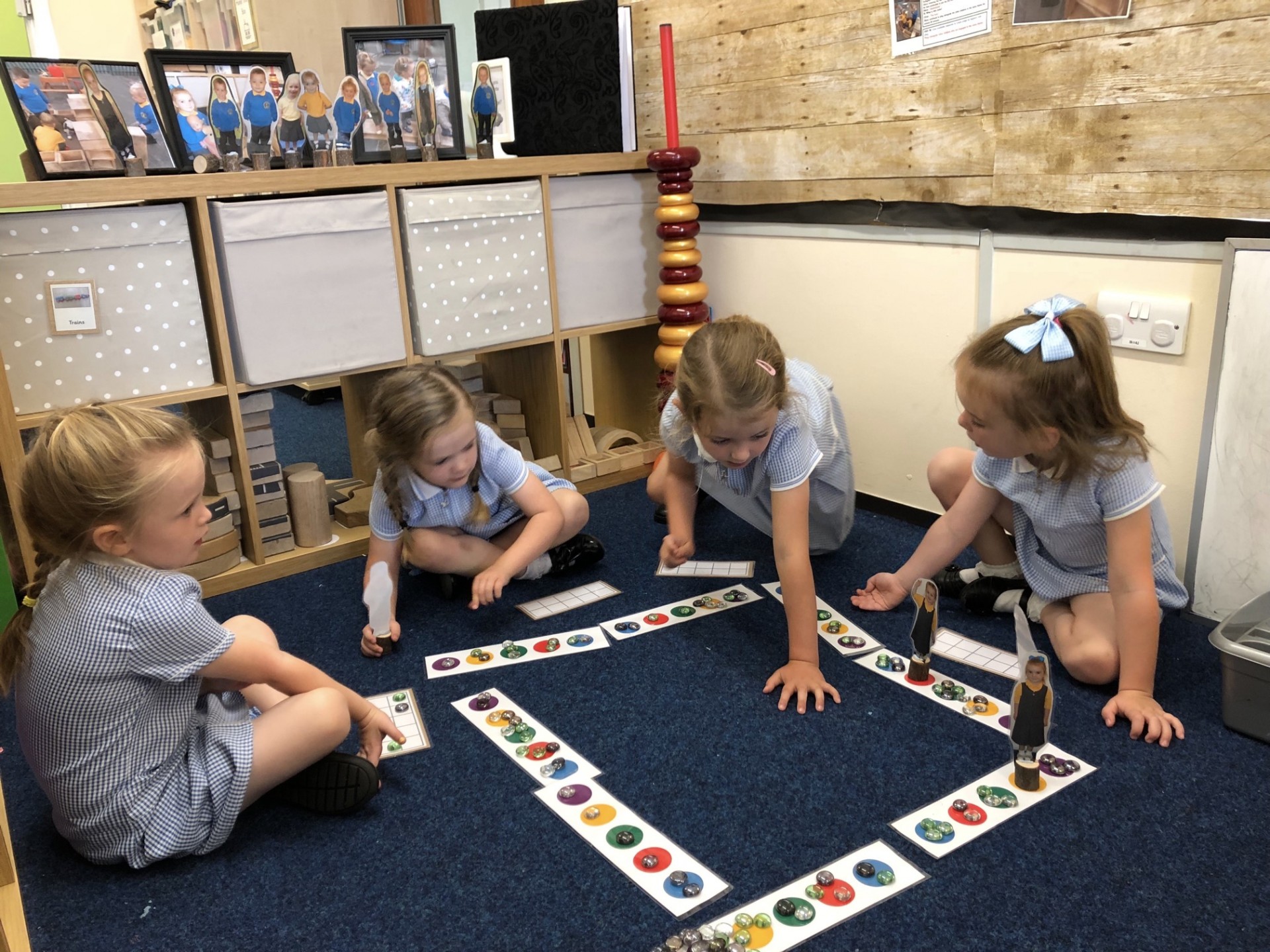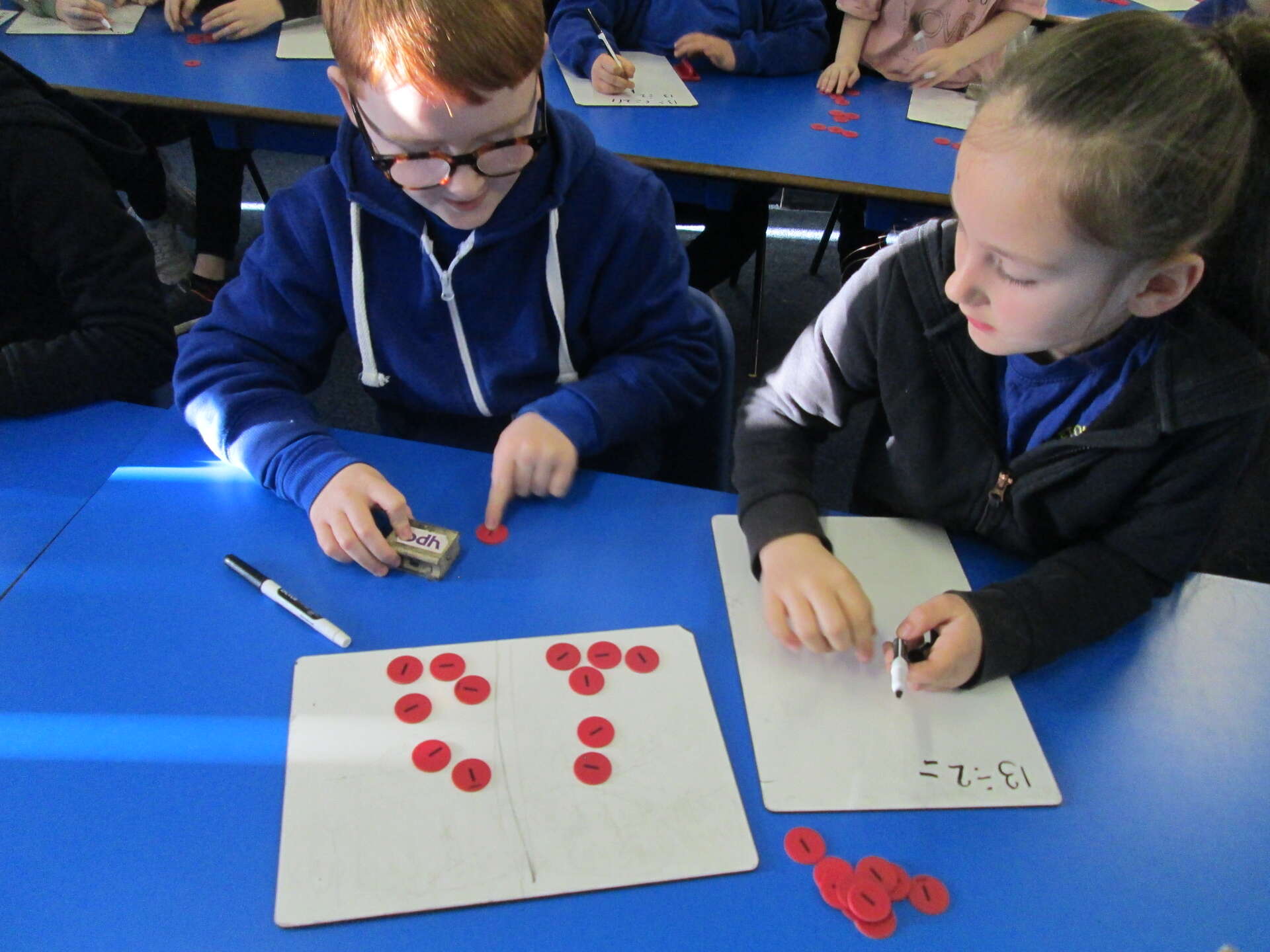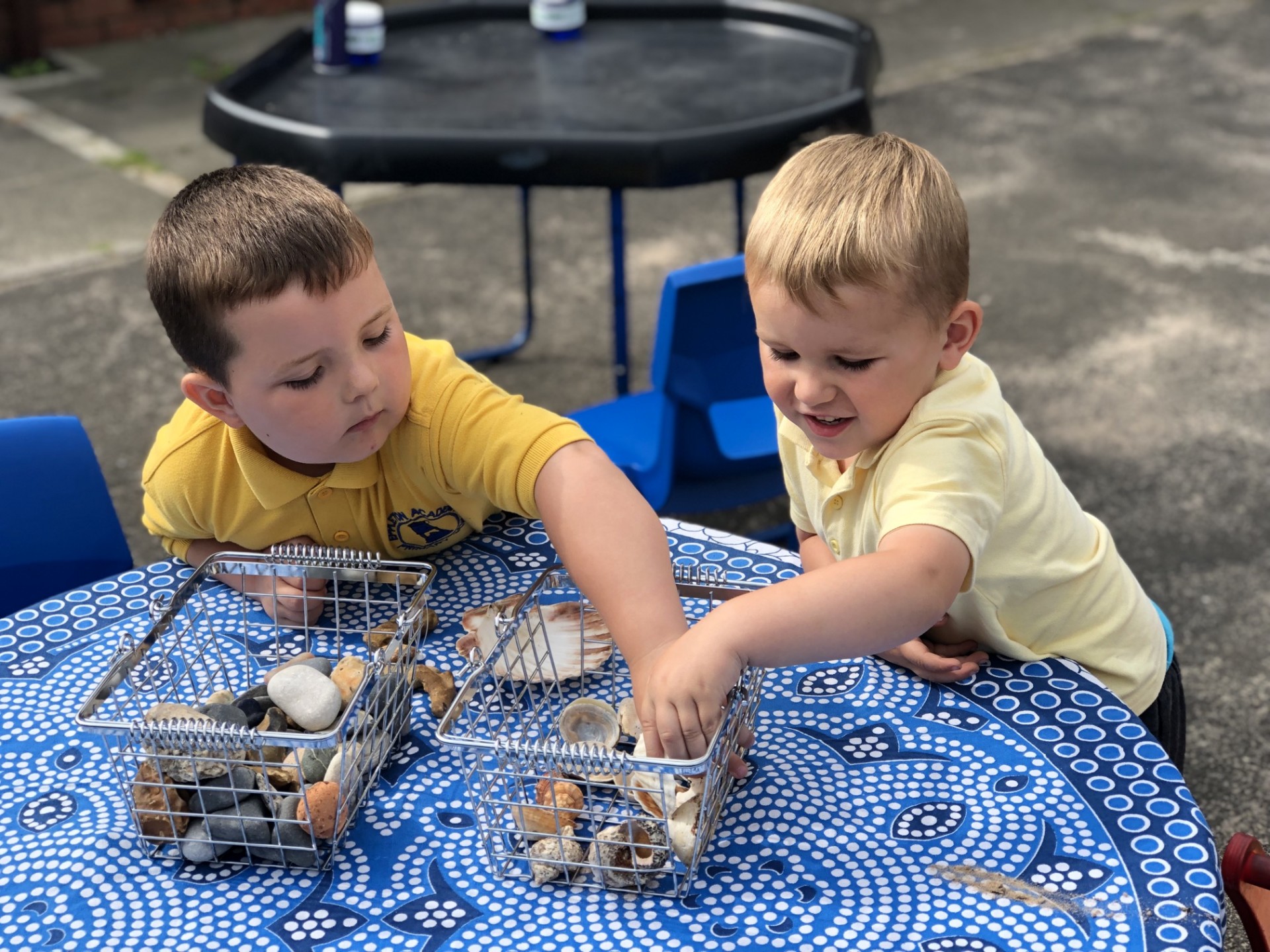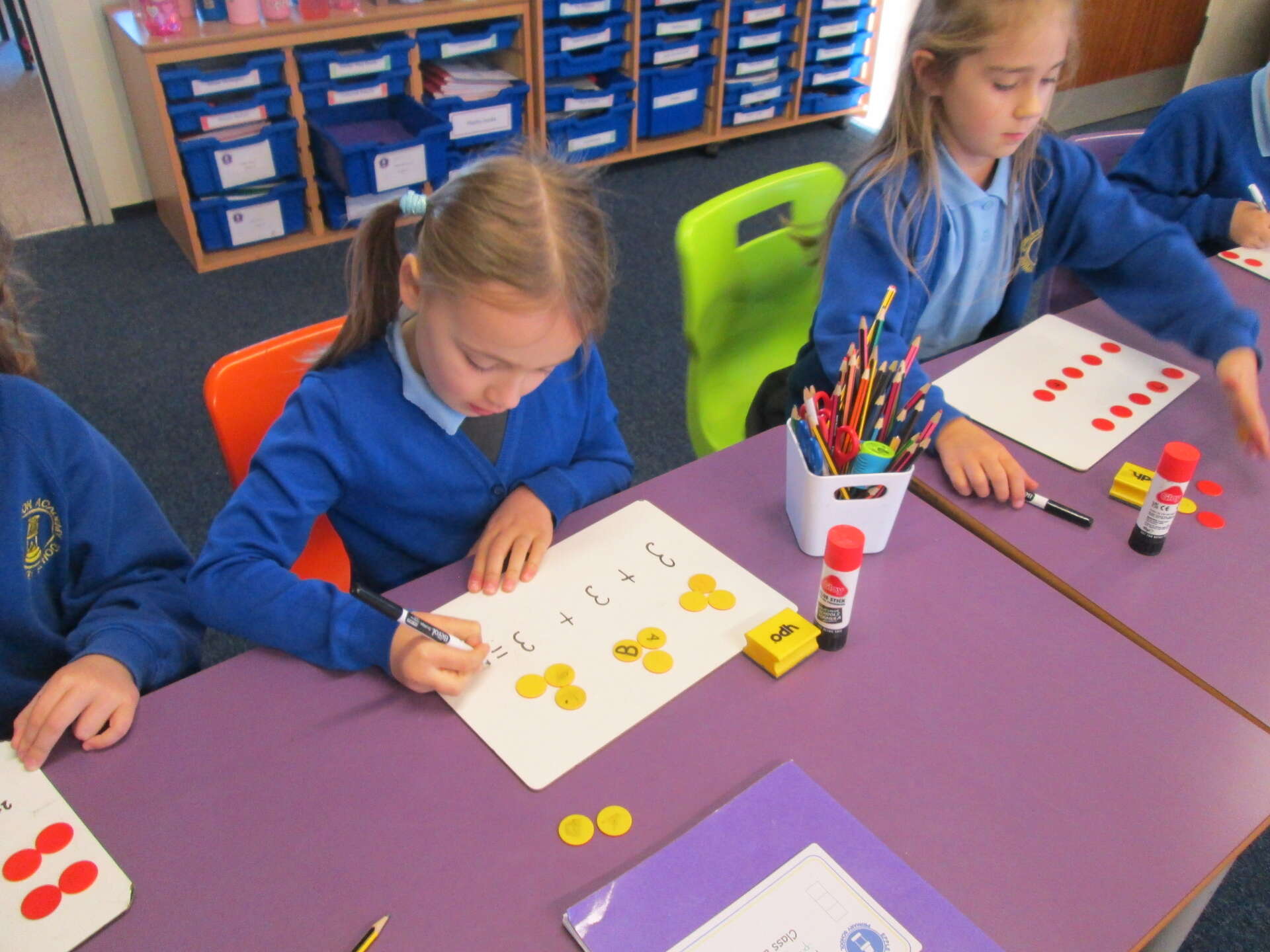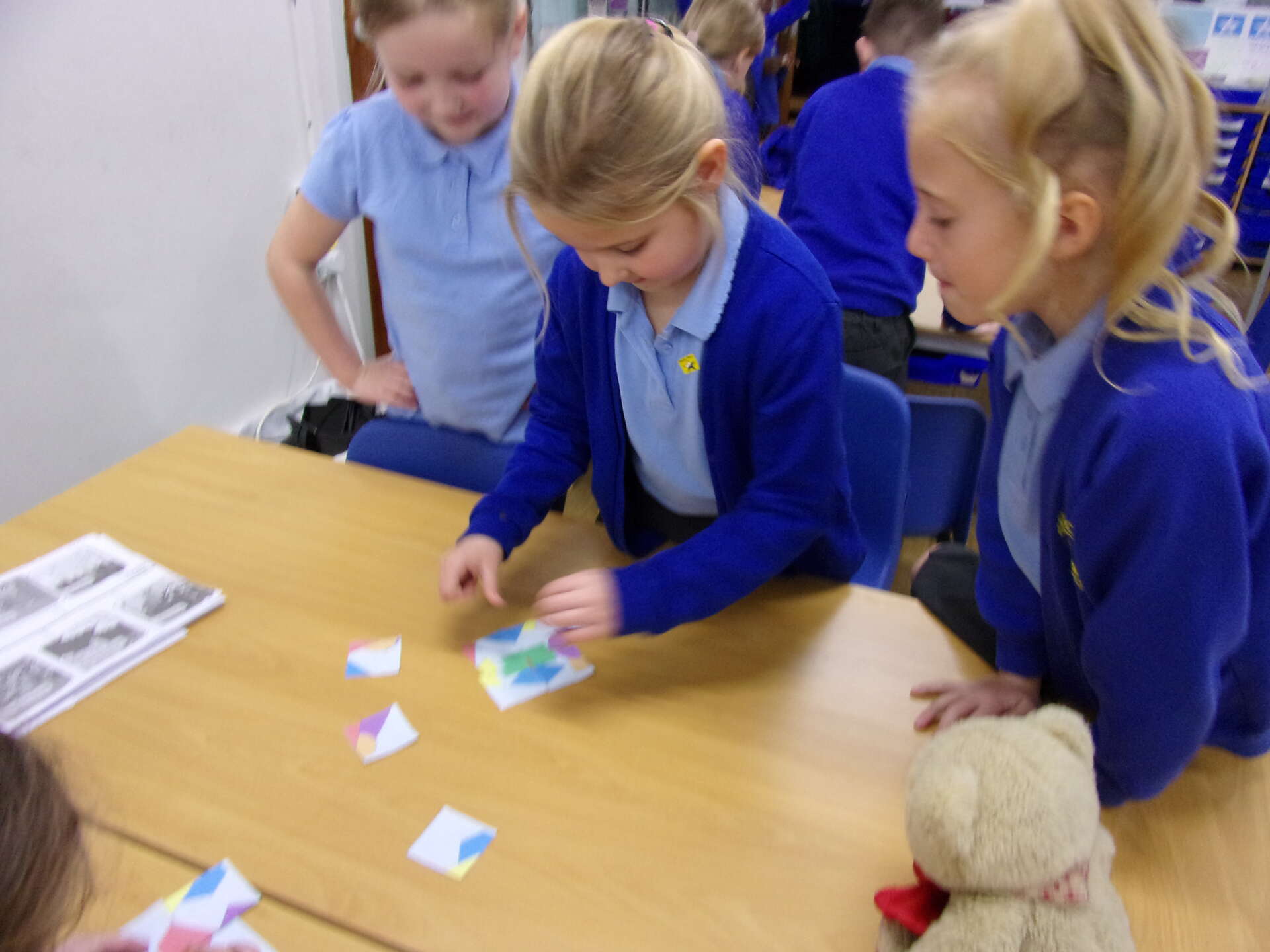White Rose Hub
We use White Rose Hub to suppport the planning of our maths mastery curriculum. Click the link to find the maths yearly overviews for each class.
White Rose Hub
At Eppleton, our maths curriculum is designed to secure, for all children, a fluency in number and an ability to manipulate number to support problem solving and reasoning. Through the Mastery approach, all children are able to make progress, particularly through the CPA approach (Concrete, Pictorial, Abstract) Our curriculum aims to provide some cross-curricula opportunities to allow children to apply their maths learning in context, particularly in science. We believe it is important for our children to develop resilience and problem solving skills through their maths learning in order to prepare them for life-long learning.
"We want our children to understand and be able to explain their maths learning with passion and excitement".
At Eppleton, we follow a mastery approach. All lessons are pitched at end of year expectations. Content will be progressive and challenging for all. Lessons might be slow paced or fast paced; depending on how the children grasp the concept. Lessons will include fluency, reasoning and problem solving.
"At Eppleton we aim to teach the National Curriculum through a variety of fun and engaging maths lessons".
Lessons are carefully crafted to follow a concrete > pictorial > abstract approach (progressing from concrete resources/objects, to pictorial representations, finally to concepts presented in calculations or word problems.). Objectives are taken from the National Curriculum. Tasks/activities will largely be taken from White Rose hub. However staff are encouraged to draw from a wide range of quality sources such as: Classroom secrets, NRich, Grammarsaurus, NCETM, Third Space Learning etc.
In EYFS, maths is fully embedded into the daily routine. Through the environment, children are encouraged to apply their mathematical learning and problem solve. Maths is taught during whole class input and then in focus groups which are teacher or TA led. The role of the adult in facilitating maths learning aims to: prompt, initiate, question and encourage maths learning throughout the day. Maths lessons will typically include counting and practical, hands-on maths learning and developing number sense. The same approach is initially used in Y1 to help the children transition whereby they work in small teacher led groups while accessing continuous provision. As the year progresses the children are prepared for the approach taken by the rest of the school so they are year 2 ready. Children are encouraged to seek out their own resources and become less dependent on an adult by working with peers/ independently.
In KS2, children take part in Daily Maths Meetings (DMM). These are to develop fluency within place value, counting, fact recall and calculation and aim to develop automaticity. They are structured to provide daily opportunity to practice SPCFC: Subitising, Place value, Counting, Facts recall and Calculation. There is no expectation that the children record these sessions in books and they should be fun, engaging and interactive.
Numbersense builds a deep understanding of number and number relationships and develop fluency in addition, subtraction, multiplication and division facts and concepts. Numbersense is taught in EYFS (Reception), Year 1, Year 2 and Autumn Term Year 3. Sessions are taught daily and follow the Numbersense scheme of work. This is to improve the number facts knowledge and number fluency (Automaticity).
We use White Rose Hub to suppport the planning of our maths mastery curriculum. Click the link to find the maths yearly overviews for each class.
White Rose HubNumBots is great way for Key Stage 1 children to develop their mathematical understanding, speed and accuracy of number. Just click the link and sign in to get started.
NumBotsPractise times tables online. This resource is for Key Stage 2 children.
Timetable Rockstars"Pupils get the chance to return to areas of mathematics on a regular basis. They can explain how they gain more knowledge each time they revisit. This is because new learning builds upon what pupils already know or can do. In 2019, pupils’ progress in mathematics across key stage 2 was significantly above average. Many pupils say that mathematics is their favourite subject".
Read MoreAssistant Headteacher/ Teacher / Maths Lead/ Computing Lead/ DDSL
Enjoy travelling, visiting new countries. I am a football fan, supporting Sunderland and enjoy going to gigs.
